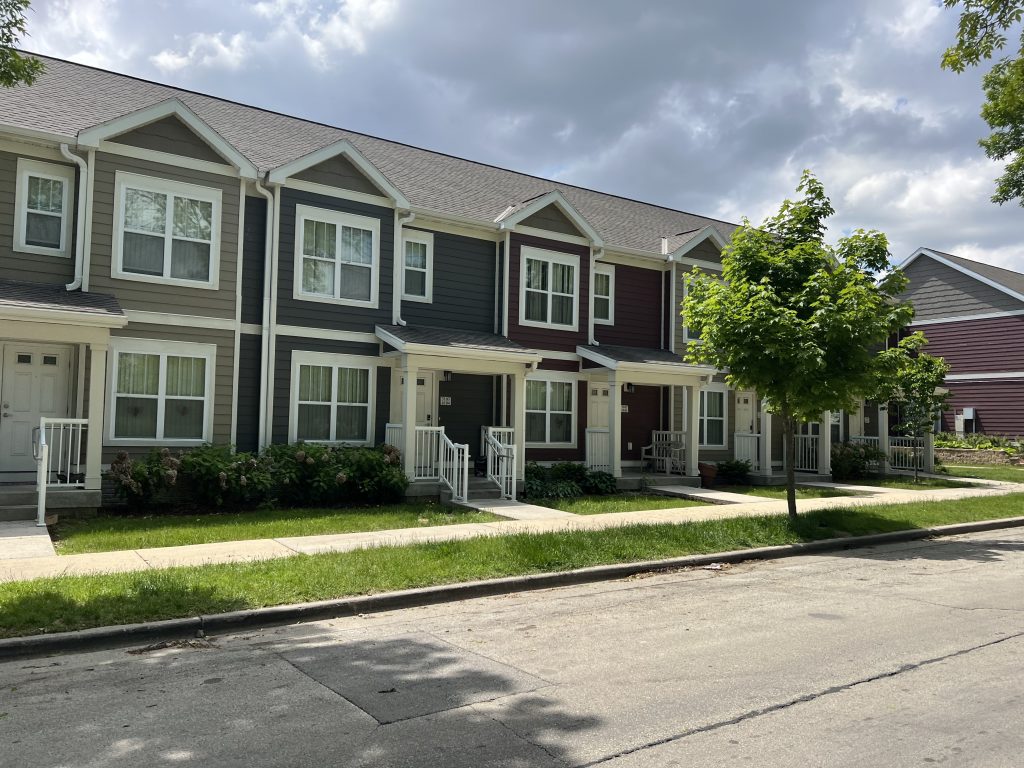‘Growing MKE’ Proposal Picks Up Key Endorsement
New name, revised plan turns one major opponent into a supporter.
A signature policy proposal for Mayor Cavalier Johnson scored its first official endorsement Monday.
The City Plan Commission unanimously recommended approval of a significant revision to the housing element of the city’s comprehensive plan. The effort, long known by the catchier title “Growing MKE,” kicked off in 2022, but has been stuck since opposition emerged last summer.
In the intervening 11 months, one of the biggest opponents pivoted to supporting the plan.
The revised plan would still support the administration’s goal of increasing the amount and types of housing options available in Milwaukee. But several items were removed, including legalizing duplexes citywide, and a 49-page harm and benefit analysis was created to outline the policy’s expected impacts, including attempting to prevent gentrification.
“We know that we want to make sure that our housing choices and housing options provide choices for all of the diverse tapestry that represents Milwaukee,” said Department of City Development (DCD) deputy commissioner Sam Leichtling at Monday’s plan commission meeting. “We know that we need to have a set of policies as a city that orient around meeting that housing need… we know that the status quo in that regard is not acceptable.”
“I think this version of the plan is a step in the right direction,” said Melody McCurtis, deputy director of Metcalfe Park Community Bridges, an organization that represents a majority Black west side neighborhood. “We know that this is just the first step. We know that zoning policies come next. And we are really excited about that next step.”
“I know that it was rocky sometimes, but even through the rocky times, they listened,” said Danell Cross, the group’s executive director, in praising the Department of City Development for working with the community. “I think that this plan is 100 times better than the first plan because the community is in it.”
Metcalfe Park was one of a handful of groups that showed in large numbers at a July 2024 hearing to demand that the plan be held. Despite DCD hosting online surveys and engagement sessions at libraries and other events, McCurtis and others said the department had failed to engage residents who would be impacted. McCurtis and Cross are now praising the city for slowing down and getting it right.
The revised plan calls for more policy action, including lobbying, to get state and federal support for affordable housing efforts. An accessory dwelling unit (ADU) element, commonly called carriage houses, remains for properties that are owner-occupied. The proposal, a precursor to explicit zoning code changes, also calls for legalizing townhomes in every residential district.
Since the last hearing occurred, Milwaukee has been the subject of a sustained barrage of news that its housing market is among the country’s most competitive. “Milwaukee Is One of America’s Most Cutthroat Rental Markets” was the headline on an April 30 Wall Street Journal article.
But the revisions and hot housing market haven’t resulted in opposition vanishing. Residents from both extremes of the income spectrum aired their concerns Monday.
A handful of East Side residents testified about their concerns that the proposal would harm their primarily single-family neighborhood, among the city’s wealthiest.
“Single-family housing and stability go hand-in-hand in this neighborhood,” said Lake Drive resident and attorney Mark Foley. “There is no other neighborhood like it. This plan would destroy it… this is maybe a great plan for the city as a whole, it is a disaster for this neighborhood.”
He said five of his neighbors had openly discussed moving to Shorewood as a result.
“This whole project that has been going on has been generally threatening to my neighbors,” said East Side resident Pam Frautschi. “There seems to be a missing concept of history and preservation.”
Sy Smith, a Five Points neighborhood resident, said she continues to be against the proposal. Representatives of the Five Points Neighborhood Association had previously spoken out against the plan, stating that it would lead to gentrification.
Several other community members spoke in favor of the plan, and some expressed that they wished the plan went further, as it once was proposed. That includes council co-sponsor Alderman Mark Chambers, Jr. “We need to do something different,” he said.
“My goal in sponsoring this legislation has always been to address the housing crisis,” said Alderperson JoCasta Zamarripa. “All great journeys begin with that very first step.”
Alderwoman Sharlen P. Moore has also signed on as a co-sponsor. “We have to start somewhere,” she told the commission.
“The status quo is simply not working,” said Jenny Tasse, a member of the 1000 Friends of Wisconsin‘s Housing Coalition, which is supporting the plan.
After listening to almost two hours of testimony and asking a series of clarifying questions to the DCD staff, the citizen-led plan commission unanimously recommended approval.
Leichtling said DCD was committed to sharing its tracking of the results with the plan commission and the public, but based on experience elsewhere didn’t think there would be a rush to build ADUs or other “missing middle” housing options endorsed by the plan.
The plan now moves to the Common Council, which is expected to review the proposal at an upcoming Zoning, Neighborhoods & Development Committee meeting. The committee also will need to review a revised version of its ADU ordinance, which the sponsors held in April pending concerns about the area around UW-Milwaukee after attempting to advance the plan on their own before the larger Growing MKE proposal was reintroduced.
If adopted, Leichtling said it would take up to 18 months to bring forward all of the specific changes, but that the policy document would help guide land use decisions.
For more on the changes to the plan, see our May 1 coverage. For more on the controversial plan, and what proponents think would actually happen if implemented, see our July 2024 coverage.
Legislation Link - Urban Milwaukee members see direct links to legislation mentioned in this article. Join today
If you think stories like this are important, become a member of Urban Milwaukee and help support real, independent journalism. Plus you get some cool added benefits.
More about the Growing MKE proposal
- Milwaukee Seeks ‘Missing Middle’ Housing Developers - Jeramey Jannene - Nov 24th, 2025
- Milwaukee Aims To Build ‘Missing Middle’ Housing in 2026 - Jeramey Jannene - Oct 29th, 2025
- Despite Its Passage, ‘Growing MKE’ Still Not A Done Deal - Jeramey Jannene - Sep 16th, 2025
- Mayor Signs Housing Legislation, Praises Late Jonathan Brostoff - Jeramey Jannene - Jul 16th, 2025
- Council Adopts Growing MKE Plan - Jeramey Jannene - Jul 15th, 2025
- After Lengthy Debate, Council Legalizes Carriage Homes - Jeramey Jannene - Jul 15th, 2025
- Housing Plan Wins Key Council Committee Endorsement - Jeramey Jannene - Jul 9th, 2025
- City Hall: Committee Waters Down Proposed ‘Granny Flat’ Plan - Jeramey Jannene - Jun 17th, 2025
- Madison Pursuing Its Own Zoning Reform Similar To ‘Growing MKE’ - Sarah Lehr - Jun 12th, 2025
- ‘Growing MKE’ Proposal Picks Up Key Endorsement - Jeramey Jannene - Jun 2nd, 2025
Read more about Growing MKE proposal here
Political Contributions Tracker
Displaying political contributions between people mentioned in this story. Learn more.
- March 4, 2016 - Cavalier Johnson received $35 from Sharlen P. Moore























The City bends to the whims of a very vocal, very tiny group of residents. It would be disappointing if it wasn’t completely expected.
The bleating of the NIMBYs on Lake Drive makes me sick. Get your sorry butts over to Shorewood. We won’t miss you…and we’ll build affordable apartments on your lots. Everyone deserves a nice neighborhood.
Absolutely braindead logic from these small NIMBY groups within the city. No one is going to turn your house that you own into a high rise. This would simply give homeowners more freedom to do what they wish with their property. Sickening that this thought process is even given a voice regarding these zoning changes.
The history Lake Drive residents are so keen to protect, is based on racist zoning laws and illegal housing covenants. They are afraid their property values will decline because of Growing MKE. That fear is also grounded in the racist, and inaccurate belief that integrating neighborhoods cause decline in property value. That was never the case until the real estate industry began making those claims during the Jim Crow era.
It sucks how the voice of slumlords rings louder than any local’s voice.
It sucks how this plan continually gets more and more watered down.